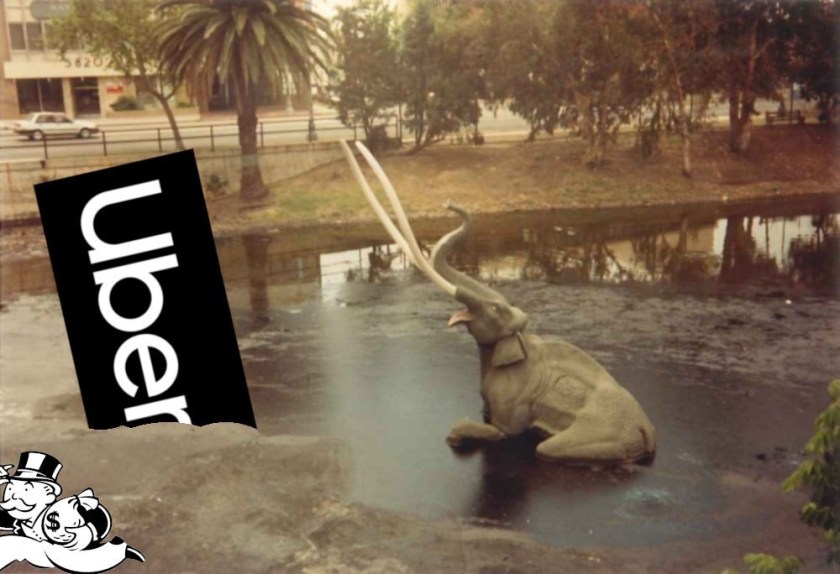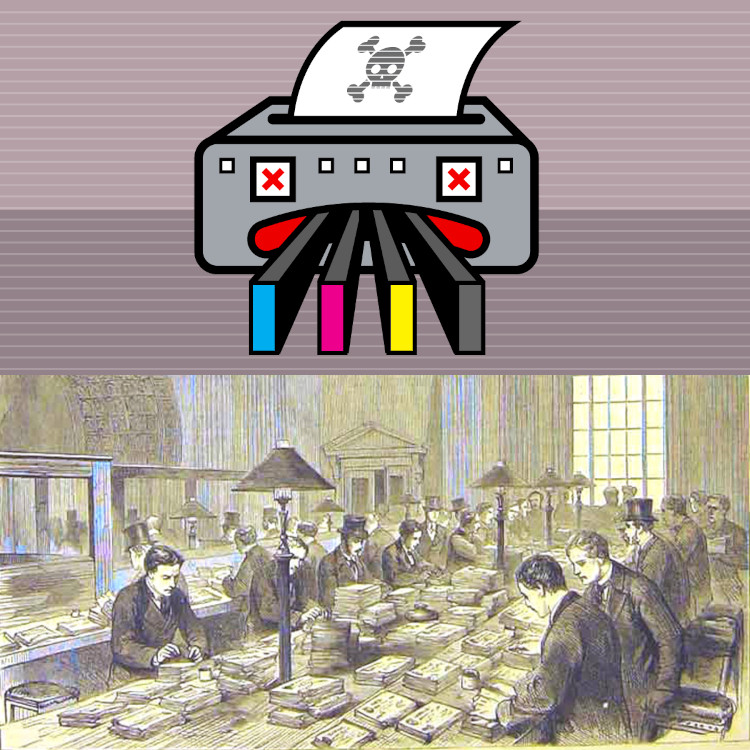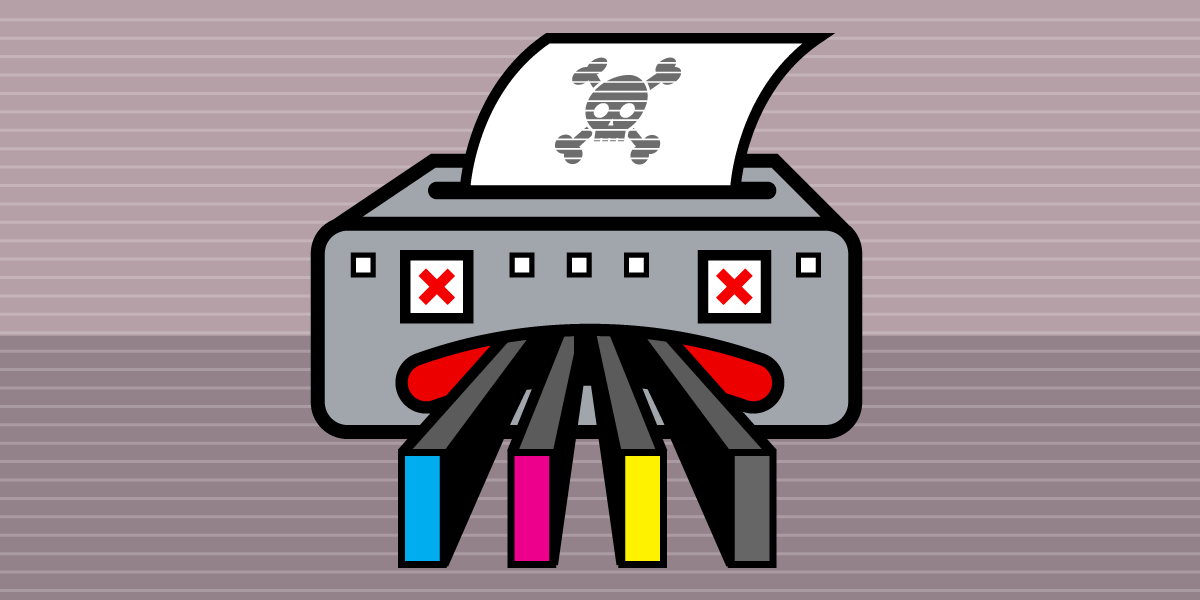
In late 2020, a coalition of predatory, money-losing, private-equity backed companies ran a $200m disinformation campaign that resulted in the passage of California's #Prop22, legalizing worker misclassification and mass-scale labor law violations.
pluralistic.net/2020/10/14/fin…
1/
pluralistic.net/2020/10/14/fin…
1/

Almost immediately, the passage of #Prop22 led to the loss of unionized jobs paying a living wage and offering basic worker protections, especially for people of color - only to have them replaced by "gig work" that lacked any of the above.
pluralistic.net/2021/01/05/man…
2/
pluralistic.net/2021/01/05/man…
2/
One of the primary funders - and beneficiaries - of Prop 22 was Uber, which pioneered worker misclassification. Uber is now pushing the EU to "harmonize" its regulations in a game of transatlantic pingpong where each volley makes things worse.
cnbc.com/2021/02/15/ube…
3/
cnbc.com/2021/02/15/ube…
3/
The irony? Uber is a "bezzle" - JK Galbraith's name for "the magic interval when a confidence trickster knows he has the money he has appropriated but the victim does not yet understand that he has lost it." Uber is a scam and it will never be profitable.
4/
4/
Uber is a product of Softbank, the Saudi-backed Japanese investment fund that has $100b to spend on helping the Saudi royals find a revenue stream to replace oil. Softbank is a pioneer of accounting frauds that make stupid businesses look profitable.
pluralistic.net/2020/05/19/lar…
5/
pluralistic.net/2020/05/19/lar…
5/
From Wework to Uber to Doordash and beyond, Softbank makes two kinds of bets: first, that they can achieve a monopoly by doing illegal or quasi-illegal things so quickly that they become faits accompli before they get shut down.
6/
6/
And second, that the companies that fail to achieve a monopoly can be unloaded on suckers ("investors") who assume that a money-losing company that has been around for a decade or more must have a path to profitability ("a pile of shit this big MUST have a pony under it!").
7/
7/
Uber will never, ever be profitable. The company admitted as much on its S1 IPO filing, where it said that profitability depended on every public transit system in the world being replaced with Uber. The company lost $4b in the first half of 2020,
pluralistic.net/2020/08/10/fol…
8/
pluralistic.net/2020/08/10/fol…
8/
If you think the first half of 2020 was bad, you should see the second half of 2020: Uber lost $6.8b more! As usual, transportation analyst Hubert Horan has the absolute best context on the company's haemorrhagic losses.
nakedcapitalism.com/2021/02/hubert…
9/
nakedcapitalism.com/2021/02/hubert…
9/
He points out that things are even worse than they seem for Uber. For many years, the pony-under-all-this-shit show required that Uber spend billions on the doomed pretense that they would someday replace drivers with autonomous vehicles.
10/
10/
$2.5B later, Uber's "self-driving" cars could go a whopping 0.25 miles before crashing. They had to PAY someone $400m to take the division off their hands. Even so, ditching the business-unit produced a gain for Uber's H2-2020 balance-sheet.
pluralistic.net/2020/12/08/req…
11/
pluralistic.net/2020/12/08/req…
11/
Now, Uber DID experience massive growth in H2-2020, in their food delivery division. However, that growth led to massive losses for them, because every delivery loses the company money, by design (more expensive pony-under-the-pile theatrics):
pluralistic.net/2020/05/18/cod…
12/
pluralistic.net/2020/05/18/cod…
12/
But Uber's food delivery long con doesn't just victimize its investors: the primary harms accrue to the restaurants the company nonconsensually opts into its delivery services (with help from Google), draining them until they collapse.
pluralistic.net/2020/09/19/we-…
13/
pluralistic.net/2020/09/19/we-…
13/
Uber claims that it is just consuming every beloved restaurant in the world in order to attain liftoff for "ghost kitchens" - literally shipping containers stuffed with precarious chefs PAYING to cook in unsafe working conditions.
14/
14/
This is what we mean when we talk about "financialization." Uber is a finance shell-game, one that can only be sustained by the destruction of all public transit, all restaurants, basic worker protections and the minimum wage.
15/
15/
And once it has taken that brutal toll on workers and the real economy, once it has fleeced the last investor lured into paying to excavate a little more of the pile of shit, it will collapse.
16/
16/
You can't lost $10b/year forever. $10b here, $10b there, pretty soon you're talking real money.
Image: Tarcil (modified)
en.wikipedia.org/wiki/File:La_B…"
CC BY-SA:
creativecommons.org/licenses/by-sa…
eof/
Image: Tarcil (modified)
en.wikipedia.org/wiki/File:La_B…"
CC BY-SA:
creativecommons.org/licenses/by-sa…
eof/
ETA: If you'd like to read or share this, here's a link to it on pluralistic.net, my blog, which is surveillance-, ad-, and tracker-free.
pluralistic.net/2021/02/16/rin…
pluralistic.net/2021/02/16/rin…
• • •
Missing some Tweet in this thread? You can try to
force a refresh










